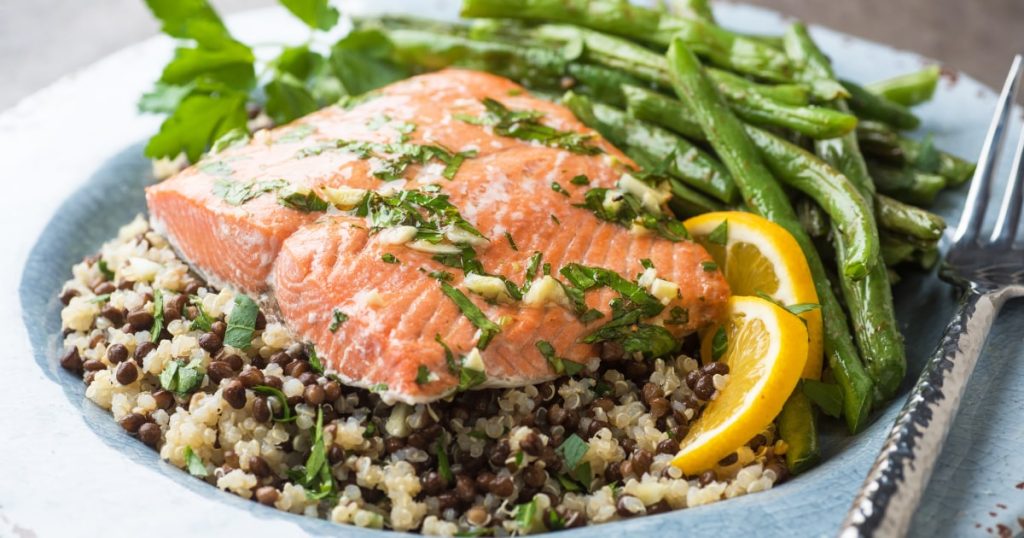Protein is a crucial macronutrient that is essential for maintaining health and overall well-being. It helps to keep individuals feeling full, strong, and energized throughout the day. If one does not consume enough protein, they may experience symptoms such as muscle fatigue, weak nails, and frequent hunger. Protein is composed of amino acids that play a vital role in repairing muscle and tissue, building muscle, and supporting metabolic reactions in the body.
The recommended dietary allowance (RDA) for protein is 0.8 grams daily per kilogram of body weight, with this amount increasing to 1.2 grams for older adults. However, protein needs can vary based on factors such as age, weight, sex, and activity level. It is advisable to work with a registered dietitian to determine the optimal amount of protein for individual circumstances. Consuming protein throughout the day in varying amounts, such as between 20 and 40 grams per meal, can help ensure adequate intake.
High-protein foods can be found in a variety of sources, including lean meats, fish, eggs, dairy, beans, legumes, nuts, and seeds. Chicken, turkey, salmon, tuna, lean beef, Greek yogurt, tempeh, cottage cheese, black beans, eggs, lentils, chickpeas, peanut butter, flaxseeds, nuts, seitan, tofu, and chia seeds are all excellent choices. These foods offer a combination of protein, healthy fats, and fiber, making them satisfying and nutritious options for meals and snacks.
When selecting high-protein foods, individuals should consider both animal-based and plant-based sources to ensure a well-rounded diet. Incorporating a variety of protein-rich ingredients can help meet daily protein needs while providing essential vitamins and minerals. For vegetarians and vegans, plant-based protein sources such as tempeh, black beans, lentils, chickpeas, and seeds can offer ample protein content along with beneficial fiber.
Overall, a balanced diet that includes an adequate amount of protein is essential for maintaining overall health. By incorporating a variety of high-protein foods into meals and snacks, individuals can ensure they are meeting their protein needs and supporting muscle growth, tissue repair, and overall well-being. Consulting with a registered dietitian can help tailor protein intake recommendations to individual requirements and preferences.


